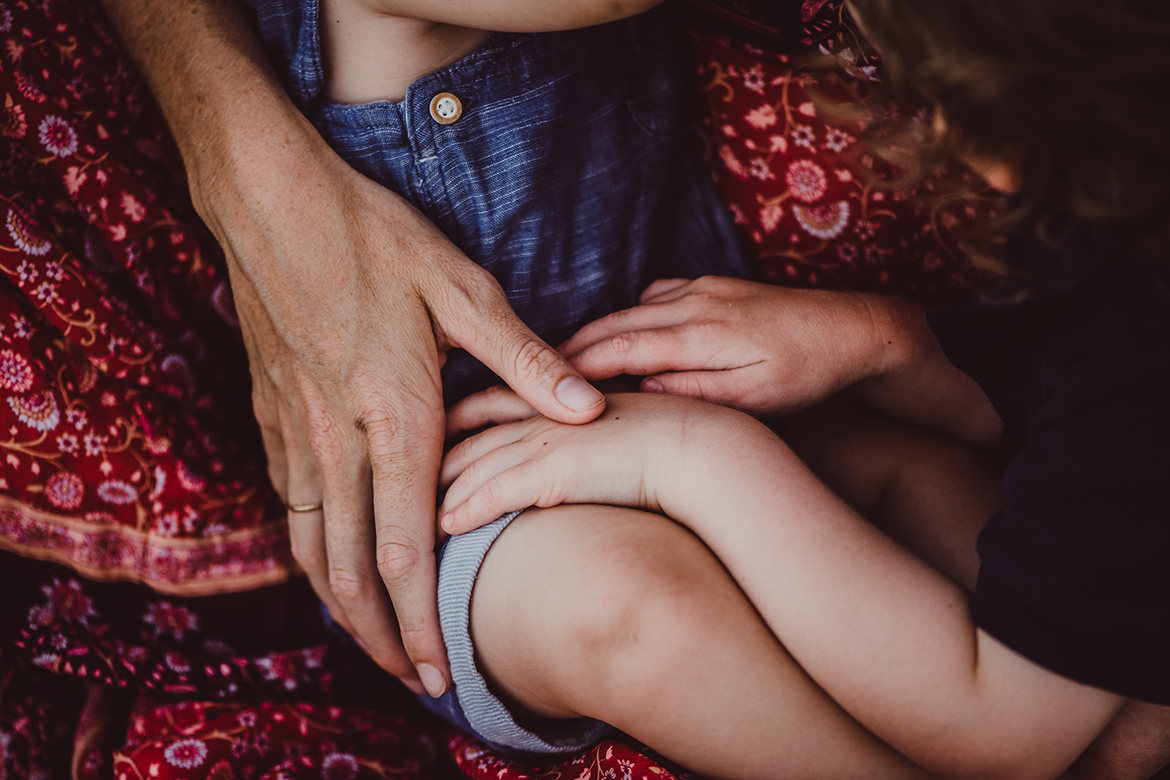By Dr. Laura Markham
“Whereas he was once the centre of your universe, he has been displaced from this paradise. He is now in time out, while you coo at his tiny rival. You cannot, of course, push back the clock to a time when he, alone, was the apple of your eye. All the same, trying to imagine how frustrated your 3-year-old must often feel can help you counteract his sense of loss. Your expressions of love, gestures of devotion, and moments of intimacy with your son can help him feel less deserted and alone. Helping your son recapture a sense of shared joy in his relationship with you will turn down the fuel of his hate, and smooth the pathway to his identification as a loving, protective, sharing person.” – Elizabeth Berger
Every parent with more than one child knows that some sibling rivalry is inevitable. But what about when your child really acts out – like when your almost 3-year-old pees on the baby?
Kids “act out” when they have big feelings they can’t put into words. So they act them out to show you. If you want to change the behaviour, help the child with the emotions or needs driving the behaviour.
In other words, don’t get stuck in reacting and punishing, which is likely to make the child more defiant and aggressive. Instead, get to the source of the behaviour, to prevent it in the future.
Remind yourself that your child’s acting out is a red flag that he needs your help with his emotions. Yes, of course you set a limit, but every child knows he shouldn’t pee on the baby. He just couldn’t manage those big feelings enough to stop himself.
Remind yourself that your child’s acting out is a red flag that he needs your help with his emotions.
What if he simply didn’t care what was right or wrong? That’s a symptom that the child didn’t care that his action would upset you, meaning right now he considers his connection to you less important than doing what he wants. It’s a red flag that you need to do some work to rebuild your connection with him.
When a toddler goes so far as to pee on the baby, he’s clearly having a hard time sharing you. This starts, of course, when the baby is born. Then there’s usually a resurgence of open jealousy when the baby begins crawling and getting into the older child’s things.
But a sibling can be a renewed threat at any age. Think about it. Your child has to share the sometimes scarce resource of your time and attention. A sibling means he gets less. We know there’s still enough love to go around, but to him, sharing resources could even reduce his chances of survival. You know how kids act out as soon as you get on the phone? Well, your attending to a sibling is like that, but even worse. His genes haven’t changed much since the Stone Age, and unconsciously, he’s worrying that your decreased attention could be a major threat. If a tiger jumped out of the bushes, who would you save?
That’s why study after study shows that when parents are able to create a strong, positive bond with each of their children, there’s less sibling rivalry. So instead of punishing when your child acts out, the best cure for sibling rivalry is to feed his hungry heart. How?
1. Re-connect
When little ones have strong negative feelings, they get overwhelmed by those emotions and their warm connection with us gets lost. This can happen many times a day, as children feel frustrated, disappointed, hurt, sad, defeated. These feelings often swamp them, disconnect them from their own internal compass of the heart, and leave them feeling isolated and adrift. That’s why children need us to reconnect with them, over and over, many times a day. Try a warm smile, a big hug, a joke that gets her laughing.
Think about it. Your child has to share the sometimes scarce resource of your time and attention. A sibling means he gets less.
2. Empathise
When your older child is loud near the baby, or overly zealous in his hugs, or has a tantrum because you’re changing the baby and didn’t come right away to help him, how do you respond? If you’re like most of us, you want to snap at him, at best. Can’t he see that you have your hands full? But if you can train yourself to empathise as you set limits…
“You wish I could come right away when you need me, I hear you…I will be with you as soon as my hands are free”
…you’ll protect that connection with your child. And that, after all, is the only reason he follows your guidance.











